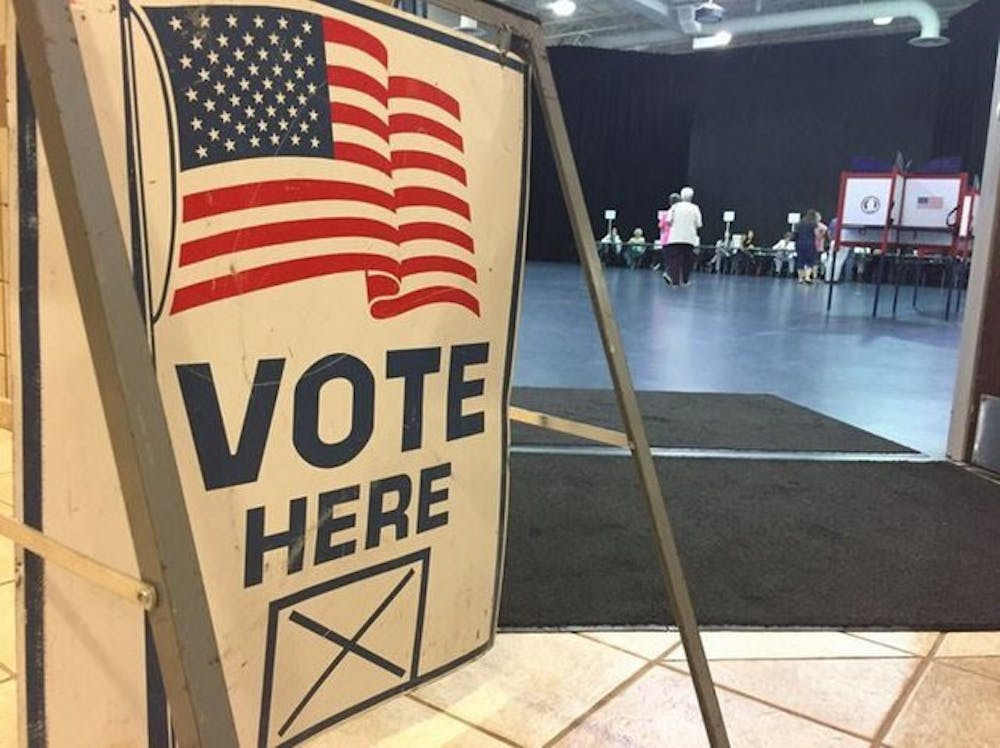President Franklin D. Roosevelt once called the U.S. the “Arsenal of Democracy,” under the specter of World War II and the Great Depression. However, it is painfully clear that we are not living up to that lofty goal.
Voter turnout was only 63% in the 2020 presidential election — a paltry number compared to many other stable democracies, yet an over 100-year high in the U.S. Voter ID laws around the country make it more difficult to vote, and under the guise of election integrity, they often target specific demographics. For example, in Texas, people can use their handgun license to vote, but not college student IDs. One may see this as rather suspect, especially considering how 18–29 year olds supported Joe Biden over Donald Trump by 17% in Texas in the 2020 election.
Meager voter turnout is not the only issue with elections in the U.S. — there is a problem with campaign finance. Outside money continues to influence politics to an astonishing degree, with millions of dollars in Political Action Committee (PAC) and Super-PAC contributions every election cycle.
It is obvious that our current electoral system is, effectively, broken. People are not motivated to vote, voter ID laws make it increasingly difficult for certain segments of society to partake in this process and dark money continues to flood into politics. What we need is reform, and luckily, there are many tried and tested methods to do so.
To begin with, several nations around the world enforce compulsory voting, in which citizens are compelled to participate in elections. People can always submit a blank ballot or provide a legitimate excuse due to travel, illness or other causes. And if someone still refuses to vote, they incur a small fine, usually $10–$20. In almost all countries where it is implemented, mandatory voting has noticeable effects on voter turnout. For example, voter turnout in Australia regularly exceeds 90%, as citizens are incentivized to cast ballots.
This is a far cry from the U.S., where high polarization and low voter participation rates encourage parties to actually depress voter turnout. Republican states, especially, have made it harder to vote in recent years, as two demographics that vote overwhelmingly Democratic — Black voters and young voters — also have low turnout. Mandatory voting would eliminate this incentive, as parties would finally be encouraged to try to win more voters rather than stop people from attempting to cast ballots.
Which brings us to the next democracy-enhancing reform: providing people with valid voter IDs for free. In 35 states, some form of voter ID is required before one can cast their ballot. While requiring voter ID is not inherently undemocratic, many of these laws (such as the Texas one listed above) make it exceedingly difficult for people in low-income communities to vote. For one, many people simply do not possess identifications such as passports, drivers licenses and bank statements. This can make voting a difficult process for those in disaffected communities, as showing up on election day and providing a name or address is oftentimes not enough. This may explain why turnout among Black and Latinx voters, who on average have lower incomes than white Americans, also have significantly lower turnout in most elections.
To remedy this, everyone should be provided with a free form of identification upon registration for voting. This could take the form of a government-issued ID, a voting-specific identification card or something else. Even if mandatory voting were not in place, ensuring that every person who wants to vote is able to would more than likely increase turnout and bridge the gap between the voting patterns of white and non-white Americans.
Finally, the U.S. needs legitimate finance reform. Thanks in part to the Citizens United v. FEC Supreme Court decision, corporations are free to donate as much in “independent expenditures” as they wish, which effectively allows them to provide unlimited advertising and funding for political campaigns. Instead, there should be strict spending caps on PACs to ensure that they do not unduly influence elected officials. A maximum spending amount of, say, $1 million would decrease the influence of the dozens of PACs that regularly provide candidates with millions every election cycle. This would comparatively increase the influence of everyday citizens, whose contributions would now matter more to win elections.
Another finance reform could be limiting spending by individual candidates. In the most recent election in the U.K., for instance, there was a spending limit of £8,700 per candidate, plus six pence (or just over seven cents, if you are American) per voter in borough constituencies and nine pence (almost 11 cents) per voter in county constituencies. If our congressional campaigns were limited by similarly stringent requirements, candidates could not amass huge treasure chests and would be more accountable to constituents.
Overall, the U.S. has a long way to go in reforming its electoral system. However, there are many commonsensical and easy ways to improve our current voting climate. Implementing mandatory voting, ensuring every citizen has a valid voter ID and limiting corporate expenditures would go a long way to improving American voting procedures. It is time we live up to being an “Arsenal of Democracy.”
Nick Daum is a freshman from Bethesda, Md. majoring in Economics and Applied Math and Statistics.





